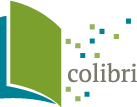Search help
You can perform a combined metadata and full text search (“Search in all data”). Alternatively, you can restrict your search to either the metadata or full text within the digital collection.
If you use more than one search term, they are automatically linked using AND. This means that results will only be displayed where all the search terms appear in the metadata or full text.
Example of search with automatic linking: print book Example result: “I would like to print a book for my father”As an alternative to automatic AND-linking, you can explicitly link your search terms using AND or OR. In the latter case, results will be displayed even if only one of the search terms is found.
Example of search terms linked by OR: book OR print Example result: A very good book”, “There are some good passages in this book”, “The print was very faint”.
In the case of a simple search, target words are automatically right-truncated. However, if you are performing an AND or OR search, you can specify left-truncation by using the asterisk.
Example of search with automatic right truncation: print book Example result: “I want to have a book printed for my mother” Example of search with explicit left-truncation: *read Results would include bread, tread, dread, etc. Please note that there is no right or left truncation if you enter a search term between quotation marks.
If you enter a term between quotation marks, the system will search the metadata or full text for the exact combination of words as written.
Example of search term in quotation marks: “page number” Example result: “The reference is on page number 24.” The search will not find: “A number of examples can be found on page six.”
Once the search has been performed, all results are initially sorted in order of relevance. Thereafter, they can be re-sorted according to different metadata fields. These fields can be selected from the list in the sidebar under “Sorting”. Click your chosen metadata field a second time to change from ascending to descending order.
Search help
You can perform a combined metadata and full text search (“Search in all data”). Alternatively, you can restrict your search to either the metadata or full text within the digital collection.
If you use more than one search term, they are automatically linked using AND. This means that results will only be displayed where all the search terms appear in the metadata or full text.
Example of search with automatic linking: print book Example result: “I would like to print a book for my father”As an alternative to automatic AND-linking, you can explicitly link your search terms using AND or OR. In the latter case, results will be displayed even if only one of the search terms is found.
Example of search terms linked by OR: book OR print Example result: A very good book”, “There are some good passages in this book”, “The print was very faint”.
In the case of a simple search, target words are automatically right-truncated. However, if you are performing an AND or OR search, you can specify left-truncation by using the asterisk.
Example of search with automatic right truncation: print book Example result: “I want to have a book printed for my mother” Example of search with explicit left-truncation: *read Results would include bread, tread, dread, etc. Please note that there is no right or left truncation if you enter a search term between quotation marks.
If you enter a term between quotation marks, the system will search the metadata or full text for the exact combination of words as written.
Example of search term in quotation marks: “page number” Example result: “The reference is on page number 24.” The search will not find: “A number of examples can be found on page six.”
Once the search has been performed, all results are initially sorted in order of relevance. Thereafter, they can be re-sorted according to different metadata fields. These fields can be selected from the list in the sidebar under “Sorting”. Click your chosen metadata field a second time to change from ascending to descending order.

